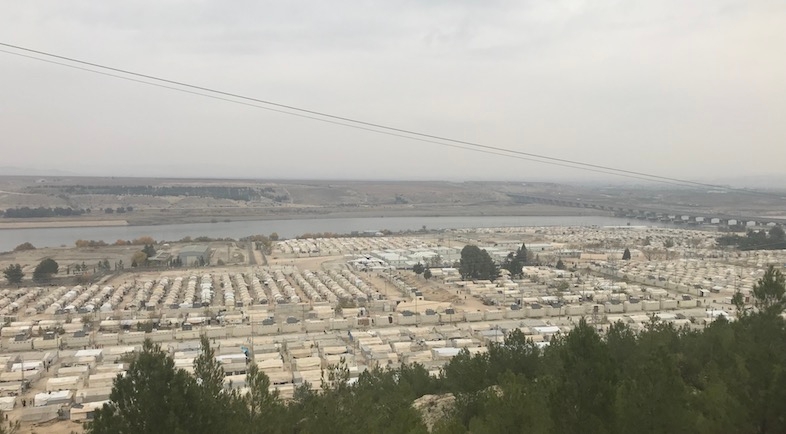What will the consequences be for the latest chemical weapons attack in Syria? Currently everyone is accusing everyone else, but doing very little. The United States says Russia is covering for President Assad. Turkey is accusing the United States of ‘calculations against’ Turkey, Iran and maybe Russia too. So a war of words, but no consequences for Assad, once again.
The lack of consequences are all too clear for the refugees still crammed into camps in the countries surrounding their war-torn home. I visited one housing 9,500 Syrians by the Euphrates in Turkey in December, and the most striking thing was not so much the size of the camp, but how permanent everything felt.


There have been so many words and so few consequences over the past seven years that the camp’s kindergarten now hosts children who were born there and have known no other home. That kindergarten and school don’t look like temporary structures: they are buildings with artwork on the walls and notices in the corridors. Their own homes are decorated inside with family photos, sports trophies and the other paraphernalia that comes from living in a place for a number of years. On some of the outside walls, there are little graffiti drawings in pen about who loves who, probably drawn by children who are now much more grown up.


Even the homes themselves are containers, rather than tents. The camp is known as ‘konteyner kent’ or ‘container camp’, and the neighbouring camp, still consisting of tents, is being converted to containers too because there is no sign that the refugees will be going home any time soon.
The children were so used to visitors that they trailed happily around after us, before losing interest. They had more exciting things to do, like curling their hair in the salons in the community building. Crowds of girls, squiggling with excitement about their ringlets, like girls all over the world do. This was another weekend day for them in what had become a normal life.


Even their parents described this place as ‘home’ now. They didn’t need to say anything more than the names of the towns and cities they had come from to explain why they felt this way: Raqqa and Aleppo were once home, but now many of the homes there are no more. Some of the happy children’s bodies tell this tale, too: they love shaking visitors’ hands, but when I reached out to one boy, I realised too late that he had none to shake. The medical centre has noticed a high rate of miscarriages and stillbirths, which they believe is a long-term consequence of Assad’s chemical weapons attacks. One family I interviewed described the wounds to their faces, to their legs, and to their minds. The mother had tears in her eyes whenever we spoke of Syria. Their children initially panicked whenever a domestic plane flew over the camp, as they presumed it would bring more bombs. All the long-term consequences are for the refugees, not the man whose barrel bombs drove them from their homes.
Some people still want to be buried back in the country where they were born and the camp does arrange for their bodies to be taken over the border. So home is no more, but this still isn’t their home soil, when it comes down to it.
Only a tiny proportion – around 6 per cent – of refugees in Turkey are living in camps. Most of them have moved to towns and cities to find work. In a sign of how permanent everything feels for everyone, not just the refugees, a number of local businesses in Gaziantep have remarked to their politicians that without the unofficial labour they receive from refugees, their industry would now collapse.
When I met two of the smiliest women in the world in an apartment block in the city, they seemed far less settled than their fellow refugees in the camps. These sisters had encountered hostility at university from students resentful of the support that the government gives to refugees in the education system. They had struggled to find jobs, and to make friends.
These women wanted to go home, but when I asked them what they hoped for the future, their faces were as blank as the people I met in the camp. No one knows when, if ever, they might go back. Even this shaky life without friends was the most permanent one they could imagine.







Comments